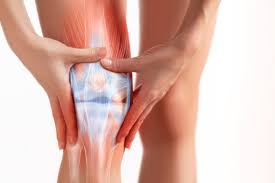
Breaking News
 Sunday FULL SHOW: Newly Released & Verified Epstein Files Confirm Globalists Engaged...
Sunday FULL SHOW: Newly Released & Verified Epstein Files Confirm Globalists Engaged...
 Fans Bash Bad Bunny's 'Boring' Super Bowl Halftime Show, Slam Spanish Language Performan
Fans Bash Bad Bunny's 'Boring' Super Bowl Halftime Show, Slam Spanish Language Performan
 Trump Admin Refuses To Comply With Immigration Court Order
Trump Admin Refuses To Comply With Immigration Court Order
 U.S. Government Takes Control of $400M in Bitcoin, Assets Tied to Helix Mixer
U.S. Government Takes Control of $400M in Bitcoin, Assets Tied to Helix Mixer
Top Tech News
 SpaceX Authorized to Increase High Speed Internet Download Speeds 5X Through 2026
SpaceX Authorized to Increase High Speed Internet Download Speeds 5X Through 2026
 Space AI is the Key to the Technological Singularity
Space AI is the Key to the Technological Singularity
 Velocitor X-1 eVTOL could be beating the traffic in just a year
Velocitor X-1 eVTOL could be beating the traffic in just a year
 Starlink smasher? China claims world's best high-powered microwave weapon
Starlink smasher? China claims world's best high-powered microwave weapon
 Wood scraps turn 'useless' desert sand into concrete
Wood scraps turn 'useless' desert sand into concrete
 Let's Do a Detailed Review of Zorin -- Is This Good for Ex-Windows Users?
Let's Do a Detailed Review of Zorin -- Is This Good for Ex-Windows Users?
 The World's First Sodium-Ion Battery EV Is A Winter Range Monster
The World's First Sodium-Ion Battery EV Is A Winter Range Monster
 China's CATL 5C Battery Breakthrough will Make Most Combustion Engine Vehicles OBSOLETE
China's CATL 5C Battery Breakthrough will Make Most Combustion Engine Vehicles OBSOLETE
 Study Shows Vaporizing E-Waste Makes it Easy to Recover Precious Metals at 13-Times Lower Costs
Study Shows Vaporizing E-Waste Makes it Easy to Recover Precious Metals at 13-Times Lower Costs
Discovery of 'Tendon Stem Cells' Could Revolutionize How We Recover From Injuries

Debilitating tendon injuries may soon be a thing of the past now that researchers have discovered the existence of "tendon stem cells" for the first time.
The buildup of scar tissue makes recovery from torn rotator cuffs, jumper's knee, and other tendon injuries a painful, challenging process, often leading to secondary tendon ruptures.
New research led by Carnegie's Chen-Ming Fan and published in Nature Cell Biology reveals the existence of tendon stem cells that could potentially be harnessed to improve tendon healing and even to avoid surgery.
"Tendons are connective tissue that tether our muscles to our bones," Fan explained. "They improve our stability and facilitate the transfer of force that allows us to move. But they are also particularly susceptible to injury and damage."
Unfortunately, once tendons are injured, they rarely fully recover, which can result in limited mobility and require long-term pain management or even surgery. The culprit is fibrous scars, which disrupt the tissue structure of the tendon.
Working with Carnegie's Tyler Harvey and Sara Flamenco, Fan revealed all of the cell types present in the Patellar tendon, found below the kneecap, including previously undefined tendon stem cells.

 Smart dust technology...
Smart dust technology...

